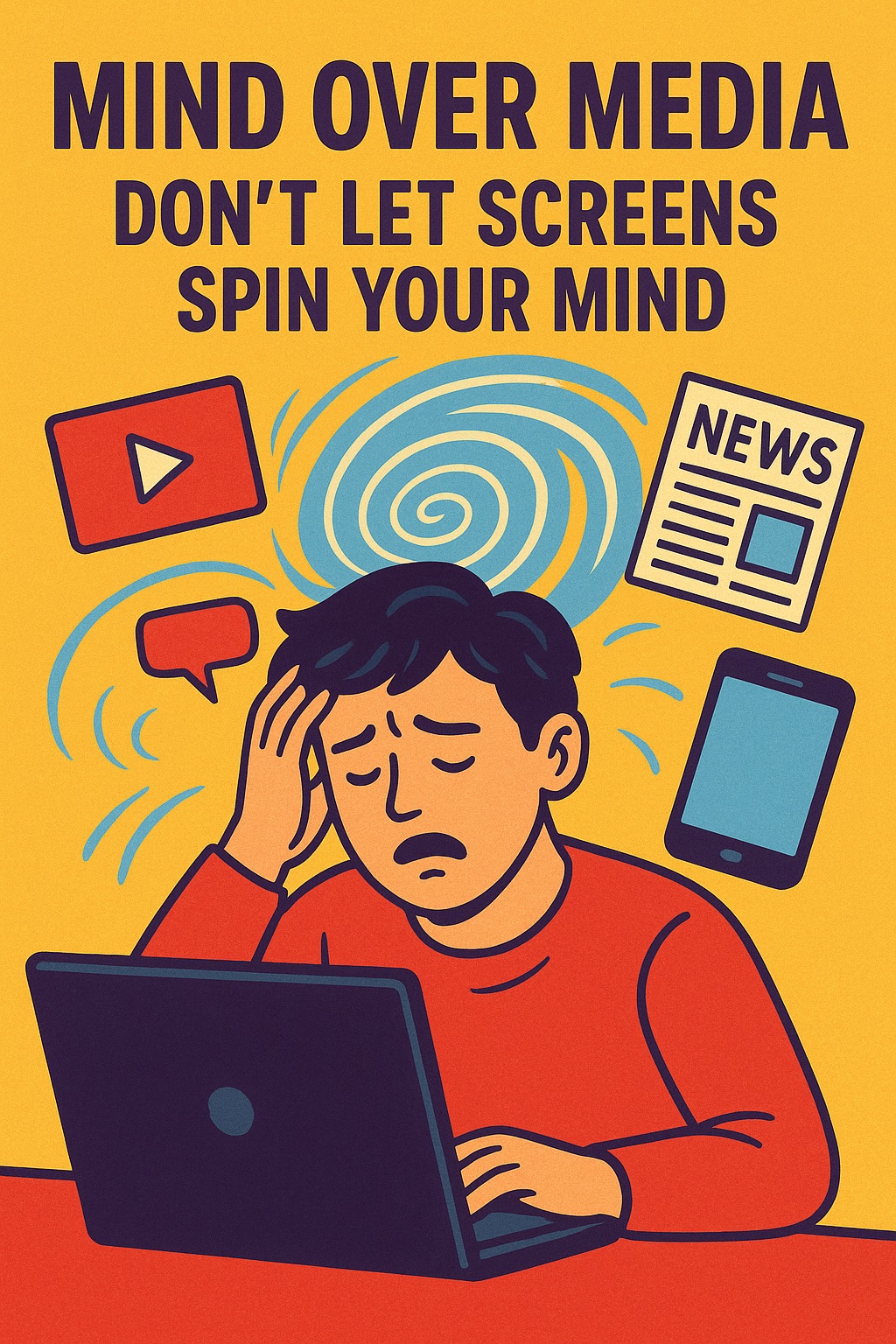22 October, 2025

In today’s world, we are constantly surrounded by screens. From smartphones and tablets to television and computers, media is everywhere - shaping our thoughts, emotions, and even our daily routines. While mass media can entertain, inform, and connect us, it also carries a hidden impact that many people overlook. The horror films, violent action movies, sensationalised news, and endless social media feeds that fill our days don’t just entertain -they affect the way our brains respond to stress, fear, and reality itself. Understanding these effects is the first step toward taking control of what we consume and protecting our mental well-being.
Mass media has become an inseparable part of our daily lives, shaping the way we think, feel, and behave. Horror movies and violent action films might seem like harmless entertainment, but the human brain reacts as if the events on screen are real. When we witness scenes of danger or violence, our brains release stress-related chemicals like adrenaline and cortisol, triggering a “fight or flight” response. Over time, frequent exposure to such content can heighten anxiety, desensitise people to real-world violence, and even disrupt sleep patterns.
News media can be just as potent, often leaving viewers feeling powerless or anxious. Evening broadcasts focusing on catastrophes, crimes, and political conflict create a constant stream of negative stimuli. Even when these events occur elsewhere, our brains struggle to separate ourselves from them. Studies have shown that continuous exposure to violent or tragic news coverage can contribute to chronic stress, disrupted sleep, and increased anxiety - a phenomenon sometimes called “headline stress disorder.” Social media compounds this effect, with algorithms prioritising shocking or fear-inducing content that keeps users emotionally charged.
Even seemingly harmless content, like reality TV or competitive shows, can subtly influence perceptions and behaviour. Constant exposure to dramatised conflict, unrealistic body standards, or aggressive behaviour can normalise these patterns, shaping how viewers perceive the world. In essence, mass media does more than entertain; it programs our emotional responses, often without our awareness. When your brain struggles to process the images and stories you encounter daily, restless or anxiety-filled nights are no surprise. Being mindful of the media you consume and balancing it with calming activities is crucial for mental well-being.
Z.Batikyan
Health & Wellness Coach
Tailored strategies designed around each individual’s unique needs for a truly personalised wellness journey.
Interactive sessions on nutrition, stress management, and work-life balance to empower participants with practical knowledge and skills.
Ongoing guidance to help people sustain healthy habits and thrive over the long term.